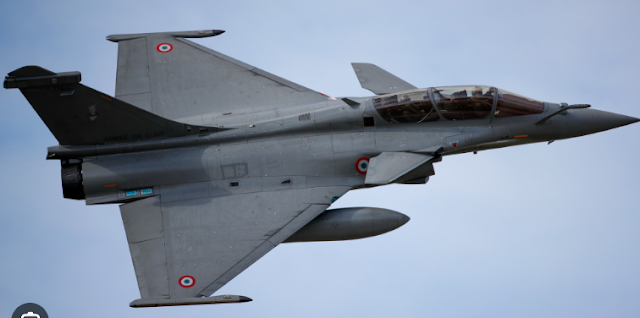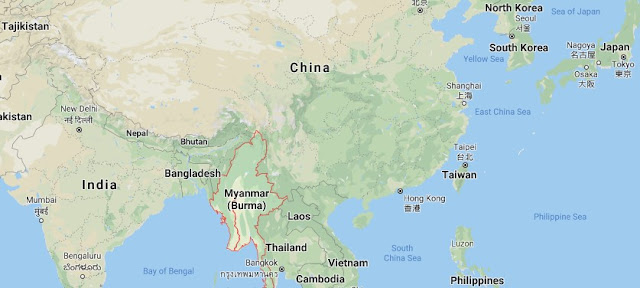..
Computer Tech Threatened by FBI of Hunter's Laptop
By KATELYN CARALLE, U.S. POLITICAL REPORTER FOR DAILYMAIL.COM
PUBLISHED: 16:18 EDT, 11 August 2022
Daily Mail
An excerpt from an upcoming book obtained by DailyMail.com claims that the computer repairman who turned over Hunter Biden's laptop to the FBI may have been threatened by one of the agents on the case
An FBI agent who was tasked with retrieving Hunter Biden's laptop from a repair shop in Delaware in 2019 allegedly threatened the store owner, according to an account from his upcoming book.
John Paul Mac Isaac wrote in an excerpt from his book, exclusively obtained by DailyMail.com, that two agents came to his laptop repair store to retrieve Hunter's laptop following a subpoena, which came months after he tried to voluntarily hand over the device to the FBI.
He claimed that during the events on December 9, 2019 at his shop he tried to 'defuse the award situation with humor' and told the two agents 'I'll remember to change your names when I write the book.'
Now, Mac Isaac has actually written a book about the events, American Injustice: My Battle to Expose the Truth, and included the interaction with those agents two years ago.
'Agent Wilson kept walking,' Mac Isaac wrote, 'but Agent DeMeo paused and turned to face me. 'It is our experience that nothing ever happens to people that don't talk about these things,' he said, before turning back and walking out the door.'
The author claims he locked the door after they left and weighed whether that was a 'direct threat' or a 'thinly veiled one.'
The ordeal came more than two months after Mac Isaac said he deployed his father to try and hand over a copy of the hard drive to the feds in New Mexico.
Hunter first came into The Mac Shop is Wilmington on April 12, 2019, according to Mac Isaac's timeline of events, which he detailed to DailyMail.com. The president's son was trying to recover data from damaged devices.
Three days after the initial interaction, Mac Isaac spoke with Hunter on the phone about dropping off a related drive to the recovery efforts, which he did the next day.
April 16, 2019 was the last time Mac Isaac ever heard from or saw Hunter.
When he called him to let him know the job was done and ready for pick up, Hunter never came, Mac Isaac claims.
That same month, Biden announced his candidacy for president.
John Paul Mac Isaac (pictured) is the laptop repairman who turned over Hunter Biden's laptop to the FBI after the president's son came into his shop in 2019. He claims in his upcoming book that one FBI agent said to him: 'It is our experience that nothing ever happens to people that don't talk about these things'.
Shortly after, Mac Isaac said he started speaking to his father about concerns related to the laptop - particularly messages he saw related to Ukraine as a story emerged involving President Donald Trump and collusion in the 2016 campaign.
Ultimately, on October 9, 2019 Mac Isaac's father took a copy of the hard drive that his son gave him to try and hand it over to the FBI in New Mexico.
But, Mac Isaac told DailyMail.com, the field office would not take the device, claiming it was not a federal issue.
He claims less than one month later on November 1, the FBI reached out to his father and on December 9, 2019 two agents came to Mac Isaac's store and retrieved Hunter's backup hard drive along with the laptop and other related paperwork.
Mac Isaac wrote in his book, set for release November 22, 2022, that he asked the agents what he should say if someone came looking for the laptop.
'Tell them you keep abandoned equipment offsite, like a warehouse location,' one agent told him, according to a book retelling.
Hunter's laptop, which came into Mac Isaac's possession in April 2019, included a slew of compromising and X-rated content – including nude, pornographic and drug-related images and videos of the president's adult son
'Tell them it will take a day for you to check and they should call back the next day,' he claims the agent added. 'Then immediately text me at my cell number. From now on, only communicate through my cell number. Not Agent Wilson, just me. We need to avoid communicating through, ah, normal channels. I'm sure you can understand. Text me and we will get the equipment back to you and deal with the situation.'
Mac Isaac noted: 'I felt like I had given away my only good cards and been left with garbage. But it was too late to reconsider; it was done.'
The author and former laptop repairman says in his book that he was relieved to be rid of the materials, but felt that it was a rush job with no real care for the gravity of the matter.
This was further proved, he claims, when he was watching the impeachment trial against Trump start in January 2020 and heard no mention of Hunter's laptop.
FROM A DELAWARE REPAIR SHOP TO GLOBAL HEADLINES: THE HUNTER BIDEN LAPTOP SCANDAL
April 12, 2019: Hunter brought in damaged equipment to John Paul Mac Isaac's laptop repair store The Mac Shop in Wilmington, Delaware.
April 15, 2019: Mac Isaac called Hunter to drop off a drive related to the recovery efforts.
April 16, 2019: Hunter dropped off the drive and requested Mac Isaac bill him thru Square when complete the next day. This was the last time he ever heard or saw Hunter.
April 17, 2019: The job was completed and bill sent and called for collection.
April 25, 2019: Joe Biden announced his candidacy for president.
September 3, 2019: Mac Isaac spoke to his father about concerns related to the contents of the laptop and decided to approach the FBI in New Mexico.
September 20, 2019: While waiting for a copy of the hard drive to arrive that he sent to my father, the Wall Street Journal ran a story about a whistleblower involving a Ukrainian phone call.
October 9, 2019: Mac Isaac's father approached the FBI in Albuquerque, New Mexico with a copy of Hunter's hard drive. The FBI refused the drive, claiming it was not a federal issue. He claimed the FBI told his father to get a lawyer and leave the FBI field office.
November 1, 2019: The FBI agent reached out to Mac Isaac's father.
November 13, 2019: Public impeachment hearings against Donald Trump begun in the Intelligence Committee.
November 19, 2019: Two FBI agents visited Mac Isaac at his home. He presented Agents Joshua and Mike with document he thought were relevant to the impeachment trial. He claimed the agents refused to look at anything and again refused to take the laptop for evaluation, claiming they needed to run it by their legal team.
December 2, 2019: Agent Joshua calls Mac Isaac to says he want to come to the shop with an FBI tech guy and make a clone of the hard drive.
December 9, 2019: Agents Joshua and Mike arrive at the shop with a subpoena to collect Hunter's back up drive, along with the laptop and any related paperwork for the repair job.
January 16, 2020: Impeachment trial starts against Trump. There was no mention of Hunter's laptop. Mac Isaac said this is when he knew for sure the FBI cared more about protecting the Bidens than protecting the then-president or the small town shop owner.
Late February thru August 2020: Mac Isaac's uncle and father, both retired Col. in the Air Force, knocked on the doors of several members of Congress and White House staffers but got no response.
August 26, 2020: Mac Isaac sent an email to the office of Trump's lawyer at the time, Rudy Giuliani, detailing efforts to get the contents of the drive to the correct authorities.
August 27, 2020: Giuliani's lawyer, Bob Costello, sent a response to Mac Isaac and the two spoke on the phone. It ended in the decision to overnight send a copy of the drive to Giuliani's office.
August 28, 2020: Giuliani's office received the hard drive.
September 23, 2020: Senators Chuck Grassley and Ron Johnson released their report on Hunter's activity.
September 24, 2020: Mac Isaac sent a letter to Senator Johnson's office thru their whistle blower link and explained the situation related to the laptop hard drive.
September 25, 2020: Johnson's office responded. They asking for more information, including if Mac Isaac is a U.S. citizen, who the agents were who collected Hunter's equipment and whether he had legal counsel.
October 5, 2020: Johnson's office questioned Mac Isaac over the phone along with two members of the National Security Agency (NSA). They questioned Mac Isaac on if he worked for anyone and if he is Russian. He said they asked nothing about the laptop or its contents.
October 11, 2020: A reporter from the New York Post tracked Mac Isaac down to confirm he had a copy of Hunter's laptop. The computer repairman called Bob Costello and asked how his identity was leak to the press, but was assured it was normal before a story broke to be leaked. He was also told his name would be left out of the reporting.
October 13, 2020: Hunter's lawyer called Mac Isaac asking for the laptop.
October 14, 2020: The New York Post broke the initial story at 6:30 a.m. about Hunter's laptop. Mac Isaac's inbox started blowing up a couple minutes later and by 9:30 a.m., Twitter, Facebook and Google blocked or repressed the story.
South Korea pardons billionaire Samsung head Lee Jae-yong to aid economy
By Thomas Maresca
Samsung Electronics Vice Chairman Lee Jae-yong received a special pardon from South Korean President Yoon Suk-yeol,
the government announced Friday, allowing the 54-year-old to take the helm of the country's largest conglomerate.
Photo by Yonhap
SEOUL, Aug. 12 (UPI) -- The South Korean government will grant a special presidential pardon to Lee Jae-yong, the de facto leader of Samsung, it announced Friday in a move that officials said was intended to help spur the economy.
The 54-year-old billionaire tycoon is among the nearly 1,700 people that President Yoon Suk-yeol will officially pardon on Monday, South Korea's Liberation Day holiday.
Lee was released from prison on parole last August after serving around 18 months of a 30-month sentence for embezzlement and bribery of former President Park Geun-hye.
The pardon will allow him to resume running Samsung, the country's largest conglomerate, freeing him from a five-year employment ban after his parole.
Lee was not the only tycoon pardoned Friday -- a handful of other top business leaders received amnesty as well, including Lotte Group Chairman Shin Dong-bin, who had also been convicted on bribery charges related to Park.
Yoon told reporters Friday that the amnesty decisions were made in an effort to spark an economy that has been struggling with inflation and is showing signs of a slowdown.
"The pardons are above all to focus on people's livelihoods and economic recovery," Yoon said.
Shortly after Yoon took office in May, Samsung Group announced that it would invest $356 billion through 2026, up more than 30% from the previous five years, and employ 80,000 workers.
The country's justice ministry also commented Friday, saying that the pardons of Lee, Shin and other leaders would provide an urgent boost "to overcome the national economic crisis."
"National economic competitiveness is enhanced by carefully selecting and including amnesty items for major economic leaders who are leading the national growth engine through active technology investment and job creation," the ministry said in a statement.
Business leaders had long been lobbying for the pardon of Lee, citing the outsize importance of Samsung on South Korea's export-driven economy, particularly in crucial global sectors such as semiconductors and memory chips. The conglomerate, or chaebol, accounts for around 20% of the country's stock market value.
Public opinion has also been strongly in favor of pardoning the third-generation company head, with some 70% expressing support in a National Barometer Survey poll last month.
There is a lengthy history of tycoons being pardoned in South Korea. The Samsung heir's father, the late former chairman Lee Kun-hee, was convicted for white-collar crimes in 1996 and 2008 but avoided jail time and received presidential amnesty.
Friday's pardons drew sharp criticism from politicians and activists, who claim such impunity feeds deep-seated corruption in business and government.
"Under the guise of 'reviving the economy,' preferential treatment for economic crimes by chaebol heads was again exercised," a joint statement by several activist groups and trade unions said Friday.
"The companies should be managed through transparent and independent decision-making by the board of directors," the statement, released by the People's Solidarity for Participatory Democracy, said. "However, until now, the heads of chaebols have used corporations as if they were their own property and used them as a means to pursue their own interests."
Lee's legal troubles are not over. He is still facing a separate trial on stock manipulation charges connected to the controversial 2015 merger of two Samsung affiliates.

Myanmar court jails Aung San Suu Kyi for six more years
on corruption charges
Issued on: 15/08/2022 - 15:32
A Myanmar junta court jailed Aung San Suu Kyi for six years for corruption on Monday, a source close to the case said, taking the ousted leader's prison time to 17 years.
This is basically a life sentence!
Suu Kyi, 77, has been detained since the generals toppled her government in a coup on February 1 last year, ending the Southeast Asian country's brief period of democracy.
She has since been hit with a series of charges, including violating the official secrets act, corruption and electoral fraud. She faces decades in jail if convicted on all counts.
Suu Kyi was sentenced to "six years imprisonment under four anti-corruption charges", said the source, who requested anonymity because they were not authorised to speak to the media.
Each charge carried a maximum of 15 years in jail. Suu Kyi was sentenced to three years for each, but three of the sentences would be served concurrently, the source said.
She appeared in good health and did not make any statement following the sentencing, they added.
A junta spokesman could not be reached for comment.
The Nobel laureate had already been sentenced to 11 years in jail for corruption, incitement against the military, breaching Covid-19 rules and breaking a telecommunications law.
Journalists have been barred from attending the court hearings and Suu Kyi's lawyers have been banned from speaking to the media.
The United States slammed the latest sentencing as an "affront to justice and the rule of law".
"We call on the regime to immediately release Aung San Suu Kyi and all those unjustly detained, including other democratically elected officials," a State Department spokesperson said.
The coup sparked widespread protests and unrest, and renewed fighting with established ethnic rebel groups.
Dozens of "People's Defence Forces" have also sprung up to fight the junta and have surprised the military with their effectiveness, analysts say.
According to a local monitoring group, the crackdown has left more than 2,000 civilians dead and seen some 17,000 arrested.
It seems odd that the most Buddhist country in the world would be run by a violent military regime.
'Erase the past'
Suu Kyi has been the face of Myanmar's democratic hopes for more than 30 years, but her earlier 11-year sentence already meant she was likely to miss elections the junta says it plans to hold by next year.
"Immune from domestic and international outrage, the punishment trials against Suu Kyi and her supporters are designed to erase the democratic past," independent Myanmar analyst David Mathieson told AFP.
"Their intent is clear to everyone it seems, everyone but the international community."
In June, Suu Kyi was transferred from house arrest to a prison in the capital Naypyidaw, where her trial continues in a courthouse inside the prison compound.
She remains confined to the jail, with her link to the outside world limited to brief pre-trial meetings with lawyers.
Many of her political allies have also been arrested since the coup, with one chief minister sentenced to 75 years in jail.
Last month, the junta stoked renewed international condemnation when it executed Phyo Zeya Thaw, a former lawmaker from her National League for Democracy (NLD) party, for offences under anti-terrorism laws.
Suu Kyi learned of the execution at a pre-trial hearing, a source with knowledge of the matter said, but has yet to speak on the matter.
The junta says it seized power following massive fraud during 2020 elections in which the NLD trounced a military-backed party and which international observers said were largely free and fair.
(AFP)






































